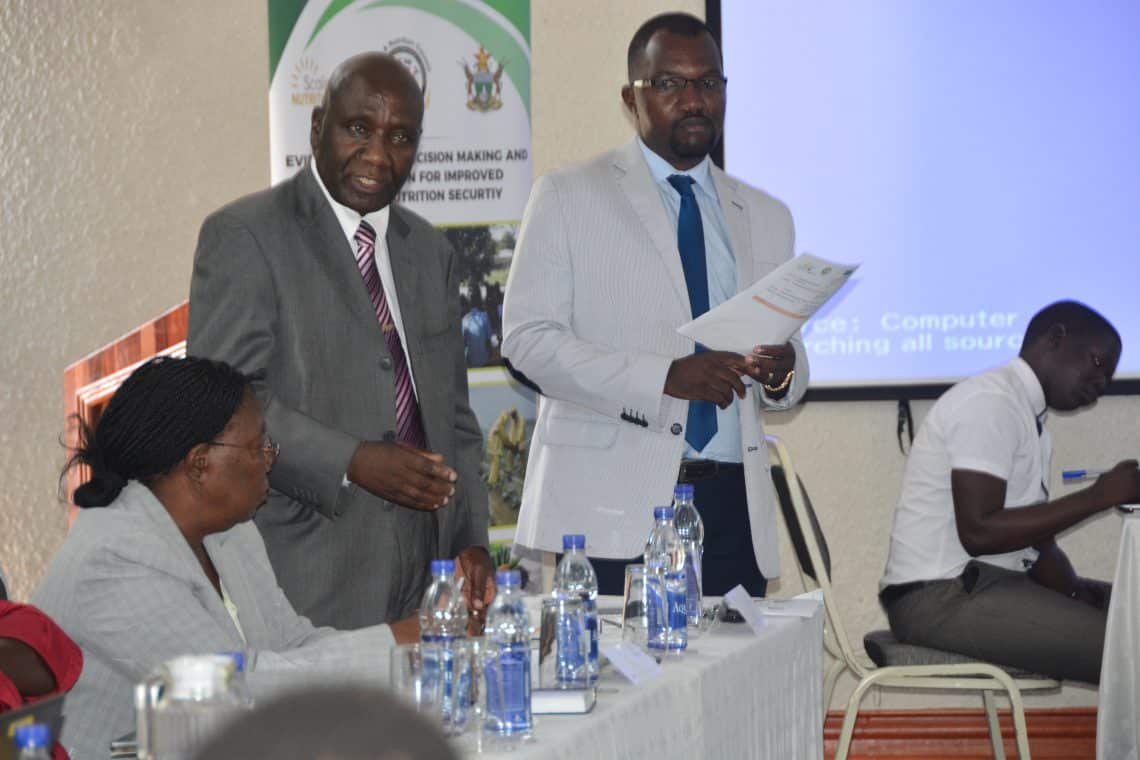By Byron Mutingwende
Zimbabwe has launched a research and academia platform for scaling up nutrition in order to accelerate the achievement of national social and economic development aspirations.
In his address while officially launching the platform in Harare on 16 March 2018, Albert Chikondo, the Senior Principal Director in the Office of the President and Cabinet said the event was a crucial milestone in national efforts to scale up evidence-based high impact food and nutrition security interventions.
“These will accelerate the achievement of national social economic development aspirations enshrined in our Constitution and goals in our National Food and Nutrition Security Policy, launched in 2013, and the five year government strategy blueprint, the Zimbabwe Agenda for Sustainable Social and Economic Transformation (ZIMASSET),” Chikondo said.
On the global arena, Zimbabwe has embraced the Sustainable Development Goals, and eliminating all forms of hunger and malnutrition is one of the government’s key goals (SDG2). It is also cognisant that without achieving food and nutrition security for all people, 15 of the 17 SDGs are unlikely to be achieved.
The country, as part of the global movement for Scaling Up Nutrition (SUN) has to date established SUN platforms for the United Nations, civil society, donors, government and the business community. The SUN movement is a renewed effort to eliminate all forms of malnutrition, based on the principle that people have a right to food and nutrition. It unites people from governments, civil society, UN, donors, business and researchers in a collective effort to improve nutrition.
Food and nutrition insecurity leads to a vicious cycle of malnutrition, increased susceptibility to disease, impaired mental and physical development, reduced productivity and poverty, resulting in compromised respectability and dignity. Chronic malnutrition is the main cause of up-to one-third of deaths in children under the age of five years.
“Addressing malnutrition calls for a multi-sectorial approach with a special focus on integrated programming and capacity building to design and implement effective and resource-efficient interventions that are backed by credible evidence.
“In realisation of this, the Government of Zimbabwe is committed to enhancing and strengthening national capacity in food and nutrition security, through applied, context-specific research and learning, grounded in multi-sectorial professional training and scientific research in food and nutrition security, in line with Commitment 6 and 7 of the Food and Nutrition Security Policy (2012),” Chikondo said.
The senior government official added that deeper engagement of academic and research institutions not only expresses the state’s commitment to capacity development food for food and nutrition security, but its willingness and readiness to harness the roles of a wider base of stakeholders. Government also explicitly acknowledges the substantial technical resources and potential that resides in the academic and research institutions, both in the staff, and students.
Ismael Teta, the Chief of Nutrition of UNICEF Zimbabwe weighed in by reiterating the fact that the country needs a critical mass of technical capacity to address the multi-dimensional nature of the bottlenecks slowing the pace of reduction of malnutrition, especially stunting.
He called for academics to come up with peer review papers in order to improve food and nutrition security using a systemic, multi-sectorial approach.
George Kembo, the Director of the Food and Nutrition Council and SUN Country Convener said it was important to appreciate the potential role and contribution of academic and research institutions to addressing food and nutrition challenges.
Kembo alluded to a number of international commitments to food and nutrition security. The Universal Declaration of Human Rights (UDHR) 1948: Article 25 (1) notes that everyone has the right to a standard of living adequate for the health and well-being of himself and of his family, including food, clothing and housing.
The 1966 UN International Covenant on Economic, Social and Cultural Rights, Article 11 alludes to the right of everyone to have access to safe, sufficient and nutritious food, consistent with the right to adequate food and the fundamental right of everyone to be free from hunger. There are also UN – SDGs (ref: SDG 2 – ‘’ End Hunger, achieve food security and improved nutrition and promote sustainable agriculture.’’ )
“Target 1 seeks to, by 2030 end hunger and ensure access by all people in particular the poor and people in vulnerable situations including infants, to safe, nutritious and sufficient food all year round. Target 2 says by 2030 end all forms of malnutrition, including achieving by 2025 the internationally agreed targets on stunting and wasting in children under five years of age, and address the nutritional needs of adolescent girls, pregnant and lactating women and older persons,” Kembo said.
